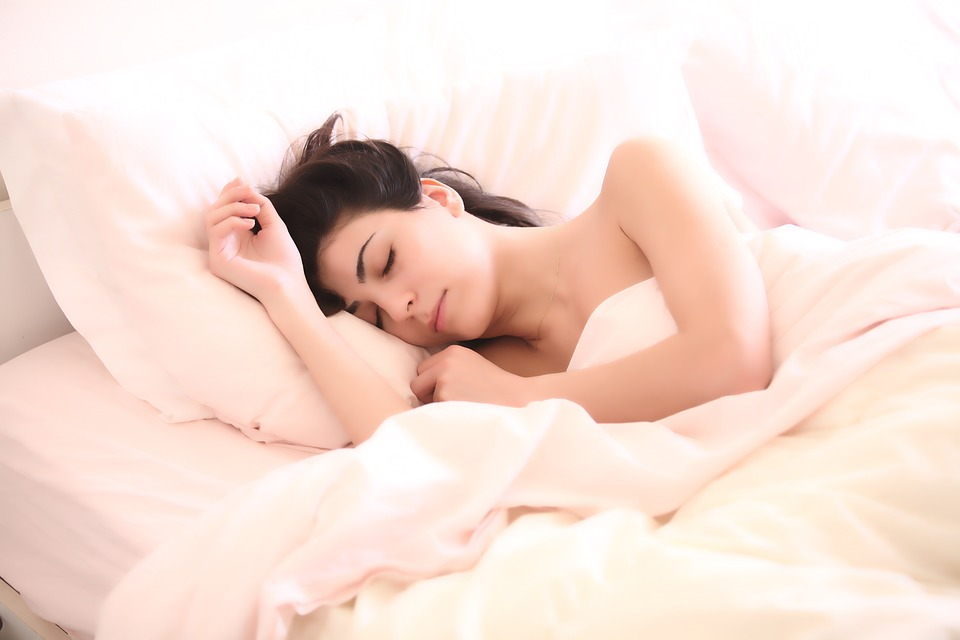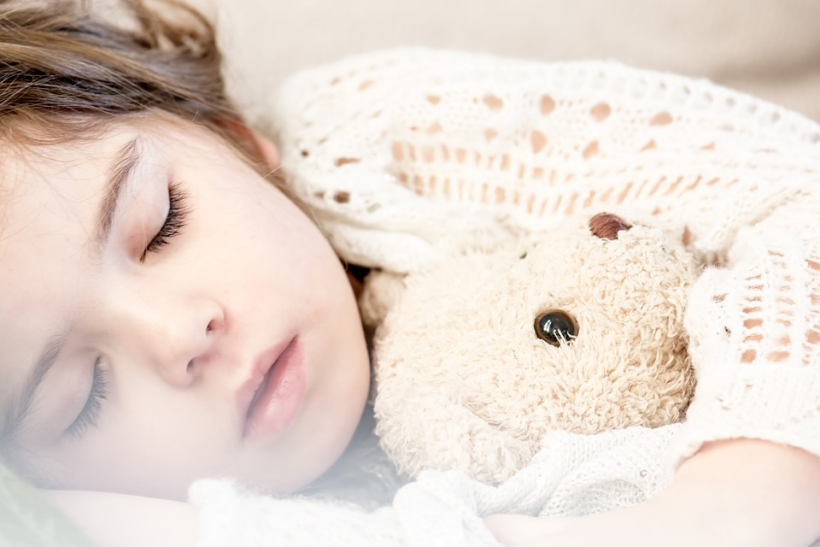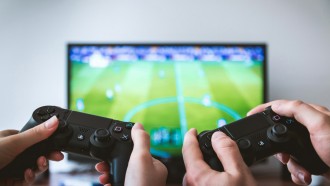
Whether you're young or old, a full night's sleep is important. It gives you the strength to be more productive the next day and it has a lot of health benefits.
One of the positive effects of sleep is that it boosts the immune system, which is vital in keeping diseases away. It improves memory, keeps us focused, and helps us to be more productive throughout the day, as well.
A full night's sleep affects our skin too. Aside from the fact that it keeps dark and deep eye bags away, it also helps in collagen growth. This keeps us looking young and glowing. Plus, it prevents acne breakouts, psoriasis, eczema, and skin allergies.
But what if you get too much sleep? Like other things, too much sleep can also cause bad effects.
Hypersomnia is one of the neurological disorders that can affect sleep. This disorder can cause a person to oversleep or excessively feel tired during the day. Thus, affecting their health.
Apart from eye bags, hypersomnia can also cause heart disease, stress, depression, digestive issues, and more. In extreme cases, it can even lead to death.
Luckily, there are ways to treat excessive sleepiness. If you think you might be suffering from this disorder, check out some effective ways to reduce it.

See a Specialist
First and foremost, if you feel like there's something wrong with your body, you must see an expert first. For this condition, you'll need to seek out the help of a sleep specialist. They can evaluate you by checking if you have the following symptoms, as per Better Health:
-
Frequently feeling the need for daytime naps
-
Persistent tiredness
-
Sleepiness, despite having a full night's sleep and napping
-
Not feeling refreshed when waking up even after a full sleep
-
Difficulty in thinking and/or making decisions
-
Apathy
-
Memory difficulties
-
Struggling to concentrate
-
Increased risk of accidents
Additionally, like any expert in the medical field, a sleep specialist can help identify what causes your excessive sleepiness as it can be caused by many factors like the following:
-
Inadequate sleep
-
Environmental factors
-
Work schedule
-
Medications
-
Mental state
-
Changes to time zone
-
Other medical conditions
Once the cause is ruled out, a sleep specialist can give you the right prescriptions. Depending on the cause, a doctor may give you stimulants such as modafinil or methylphenidate. These will help you focus more and improve your alertness during the day.
Your doctor may also give you antidepressants, like fluoxetine, citalopram, sertraline, or paroxetine. But then again, it depends on what causes your hypersomnia.
Some of these drugs are also needed to be moderated. They are not for long-term use, so it's really important to have a medical expert monitor you.
Try to Get Enough Sleep During Night
Sometimes, what's causing your excessive sleepiness during the day can be caused by inadequate nighttime sleep. Try to evaluate yourself too. If you monitor your sleep schedule, do you get complete hours of sleep during nighttime? If not, then it might be the culprit.
Adults usually need seven to nine hours of sleep per night. Teenagers, on the other hand, need nine hours. So try to accomplish eight or nine hours every night.
Stop Using Gadgets
With the advancements in our technology, it's hard to keep our eyes out of our gadgets. Our smartphones alone nearly have everything - music, videos, e-books, etc. Thus, most of us can't avoid bringing our phones into bed even when we try to sleep. It's understandable, though.
However, it can negatively affect our sleep too. Because of this, it can also cause excessive sleepiness during day time.
According to Sleep Foundation, our gadgets emit blue light. This reduces or delays our body's melatonin during nighttime. Thus, you'll feel less sleepy.
In addition to that, it affects our slow-wave and rapid eye movement sleep. It reduces the time we spend in these stages of the sleep cycle. As a result, our cognitive functioning is affected. This leads to memory and concentration difficulties, which are two of the symptoms of hypersomnia.
Try to read a book instead or do anything that doesn't involve your gadgets, computers, or TV. Your body will thank you for it.
Also, don't forget to turn off the lights. Even fluorescent and LED lights emit blue light.
Set Wake-Up Time
Sometimes, inconsistent schedules also affect our energy. For instance, you slept late yesterday, you woke up early today and woke up late the next day. This kind of schedule can disrupt our body clock. As a result, you may feel tired and sleepy during day time too.
Try to start setting a wake-up time. But make sure to stick by it. Experts say you'll need to stick to it for a few weeks, depending on how quickly your body adjusts. Some even take a few months.
But make sure that you also go to bed at the same time too. And don't forget to do this every day, even on weekends. Many sleep specialists also advise their patients to try this as this helps with anchoring the circadian rhythm (our body's internal clock, which regulates our sleep and wake cycle repeatedly).
Gradually Set Schedule
There are many factors that may cause excessive sleepiness. Sometimes, your day time activities can also be one of the culprits that make you sleep late at night, causing you to feel tired and sleepy during the day.
Another strategy that you can try is to gradually set your schedule. For instance, you can try going to bed 10 minutes earlier every night for several nights. Then, stick with the last schedule and stick to it for weeks or months, depending on how you adjust. Gradually setting your schedule is more effective than abruptly trying to sleep hours earlier than your last bedtime.
Believe it or not, some try to deprive themselves of sleep for a day, believing it will help them regularize their sleeping schedule the next bedtime. It may make them feel tired the next day, which helps them sleep on their set schedule.
However, it's not good for the body. After 24 hours without sleep, you become cognitively impaired. This means your memory, judgment, and even your hand and eye coordination skills are affected. You'll feel irritated, more emotional, and your hearing can get impaired too.
According to Fatigue Science, this happens because your body starts producing stress hormones and stops breaking down the glucose. This way, you can still stay alert and are fueled.
Some might find the sudden change to sleep schedule effective for their excessive sleepiness during day time. But it's not actually a good option.
Set Mealtimes
Some of us usually eat meals only when we feel hungry. On the other hand, you may eat on time but have snacks late at night. You might not quickly feel how it affects your sleep but notice how long before you feel sleepy at night.
Our mealtime also plays a role in our sleep quality. When we eat before bedtime, our sleep can get disrupted because of our gut. Acid reflux and indigestion could occur if we hit the sack right after having a feast because of how our gut is set up. As a result, it's hard to sleep at night.
The amount of food we eat right before bedtime also plays a part. The bigger the meal you eat, the longer it gets digested. Thus, the longer you'd have to wait for the Sandman. Additionally, the more likely you will experience dyspepsia or gastrointestinal reflux diseases (GERD).
Apart from that, the kind of food you eat also affects how long the digestion takes. Some kinds of food take longer to digest, such as meat and fish because the fats and proteins that they have are complex molecules, which take longer to pull apart. There are also kinds of foods that can cause indigestion and trigger acid reflux, such as acidic or spicy foods.
So ideally, for your sleep quality's sake, try to eat foods that are lower in fat in smaller portions. Also, try to eat your snack or dinner a few hours before you go to bed. Experts recommend eating your last meal of the day at least three hours before your set bedtime to give your gut some time to digest.
And, don't forget to try to eat in smaller portions. This way, your tummy won't have a hard time digesting it, so you can get to sleep right away.
Watch What You Drink
Apart from food, what you drink can also affect your sleep.
Caffeine can make you feel tired. Thus, it's easy for some to think that drinking coffee or energy drinks can help them sleep fast during nighttime. Yes, it is true that once the caffeine metabolizes, you'll feel tired.
However, it is the sugar content of the drink that can affect your sleep. Sugar hinders you from spending more time in deep slow-wave sleep, which is vital for the healing and restoration of the body.
Exercise
We all know that exercise is beneficial for our body. It helps you achieve your body goals, control your weight, reduces the risk of heart attack, fights obesity, and helps manage blood sugar and insulin levels, to name a few.
Aside from your physical well-being, your mind can gain from it too. With proper exercise, you can get to improve your mood, mental health, and even sleep. How, you say?
Apparently, if you exercise during the day, you'll feel more energized and happier. This is because exercise causes your body to release endorphins, also known as the happy hormone. These chemicals not only improve your mood but also make the brain active, which keeps you awake during the day.
Besides that, it also increases your core body temperature. Some people say that exercising in the morning feels like taking a shower that wakes you up during the daytime. This sends a signal to your body clock that you need to be awake. Thus, if you often feel sleepy during the day, try to exercise in the morning.
And if you struggle sleeping, you can also exercise before you sleep. Yes, it does make your brain active, which makes people pass on the idea of working out before bedtime. But, apparently, it only takes a while before it helps you feel sleepy.
Our core body temperature takes between 30 and 90 minutes to start to fall off after exercising. Endorphins are also washed out minutes after exercise. For this reason, work out at least one to two hours before you hit the sack, depending on how vigorous it is. This way, you're able to give ample time for your brain chemicals and body temperature to settle.
Don't Take Naps
When we're younger, we're used to being told to take a nap because it's beneficial. True enough, it reduces fatigue and helps you relax. It also increases your alertness and mood throughout the rest of your day.
However, it can be bad for you too. It is said that it can result in sleep inertia or groggy and disoriented feeling after you wake up. On top of that, it can give you nighttime sleep problems, which is not what you would want, especially if you suffer from excessive sleepiness.
There's no denying that naps are good - but only for some people. Because if you suffer from hypersomnia, your condition might get worse as it disrupts your nighttime schedule. As a result, you'll still feel sleepy during the day.
So, as much as you can, don't give in and nap. Try to divert your attention instead. You can try activities that can keep your brain active such as playing puzzles and other games or you can take a brisk walk.
Sleep plays a vital role in keeping our mind and body healthy. But too much of it can cause bad effects on our health too. These tips, however, can effectively help you sleep better at night and keep you awake during the day.
* This is a contributed article and this content does not necessarily represent the views of techtimes.com





